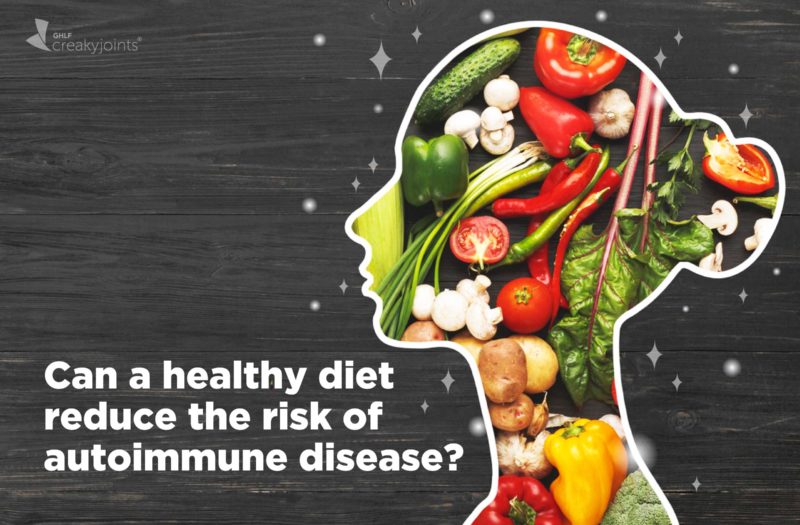Most health experts recommend that people follow an overall healthy diet — one that’s rich in anti-inflammatory fruits and vegetables, whole grains, and lean protein yet low in saturated and trans fat, refined carbohydrates, and salt — for a wide variety of reasons. People who eat in this manner tend to be slimmer and have a lower risk of health problems, ranging from heart disease to cancer to osteoarthritis.
But can a good diet significantly lower your chances of developing an autoimmune condition like lupus? New research suggests it’s not likely.
Like other autoimmune conditions, lupus is believed to be caused by a combination of genetics and environmental triggers. That means you might inherit genetic mutations that make you more susceptible to developing lupus, but something (or perhaps several things) in your environment have the potential to turn those genes “on” or “off.”
A group of rheumatologists and nutrition experts were hoping that diet might turn out to be one of those key environmental triggers. They used data from the ongoing Nurses’ Health Study, in this instance focusing on 194 participants who developed systemic lupus erythematosus (SLE), the most common form of lupus.
The researchers analyzed those participants’ food questionnaires and calculated a nutrition score for each of them based on four healthy eating patterns: the 2010 Alternative Healthy Eating Index, the modified Mediterranean diet, the Dietary Approach to Stop Hypertension (DASH) diet, and the Empirical Dietary Inflammatory Index.
According to the results, which were published in the journal Arthritis Care & Research, there was no association between nutrition scores and the likelihood of developing SLE. That was true for women who had inherited a predisposition to lupus as well as those who had not.
The researchers did note, however, that women who ate large amounts of nuts and legumes were 41 percent less likely to develop lupus than those who rarely consumed nuts and legumes. They called this finding “hypothesis-generating” and said it “should be pursued in future studies.”
The researchers noted that this analysis shouldn’t be the final word on this topic. They suggested that perhaps diet earlier in life may be more influential in lupus risk than diet later in life (and the youngest dietary assessment in this analysis was at age 27). “Our findings warrant replication in large, prospective, general population cohorts, with younger participants and increased racial/ethnic variation,” the study authors concluded.
Track Your Lupus Symptoms with ArthritisPower
Join CreakyJoints’ patient-centered research registry and track symptoms like fatigue and pain. Learn more and sign up here.
Barbhaiya M, et al. Association of Dietary Quality with Risk of Incident Systemic Lupus Erythematosus in the Nurses’ Health Studies. Arthritis Care & Research. September 2020. doi: https://doi.org/10.1002/acr.24443.






